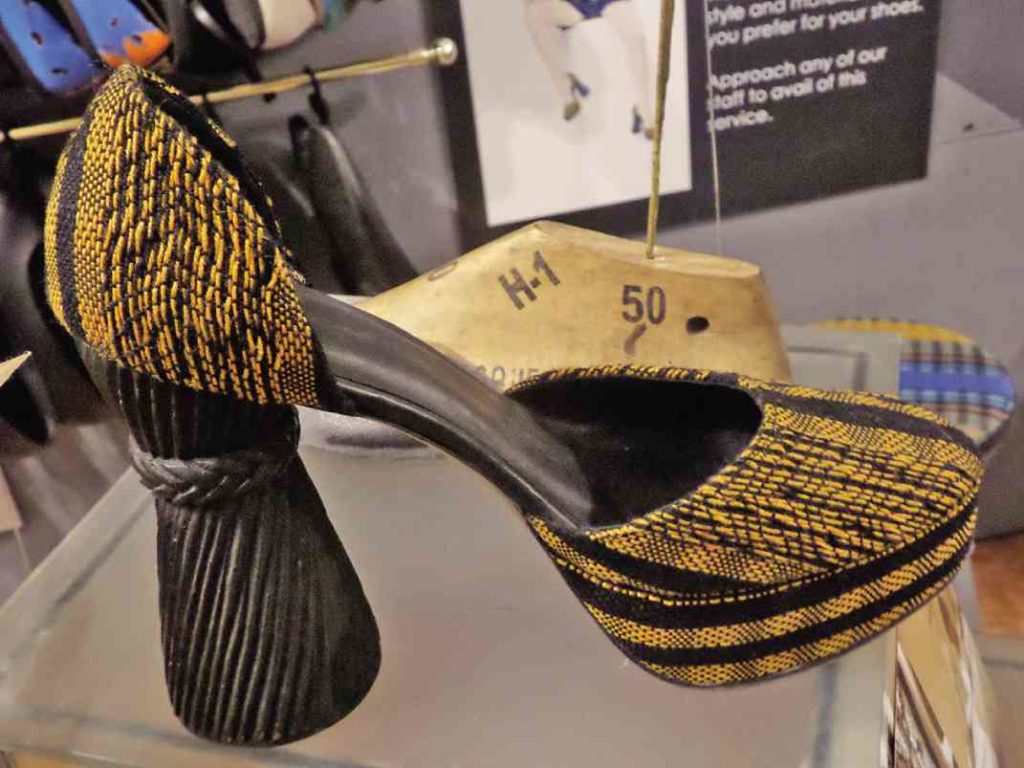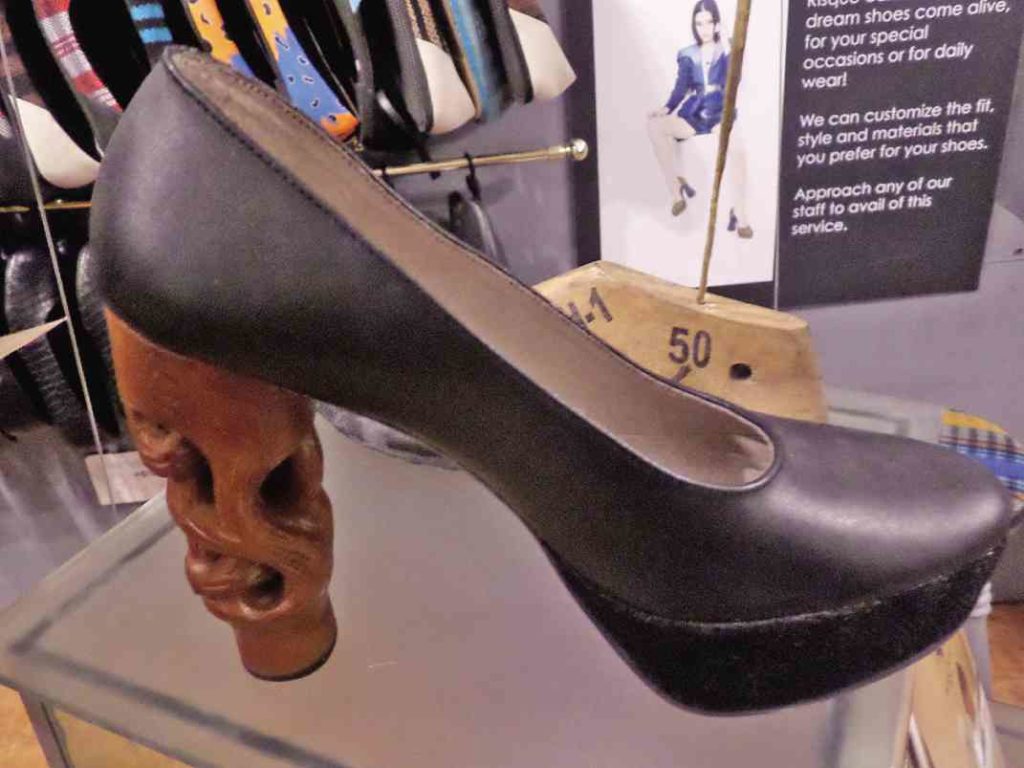The shoe fits for this young woman
With cheap shoes from China flooding the country and several well-known brands now readily available, even if more expensive, it would seem that footwear —even if Imelda Marcos is planning to rebuild her collection—is not a very promising business, specially for a 20-something woman.
But Tal de Guzman believes there is room for her in the shoe business and that she can create a niche among discerning buyers.
“People will pay for quality,” explains the young entrepreneur, an arts management graduate of Ateneo de Manila University, who makes handcrafted and almost custom-made shoes, each design a limited edition.
De Guzman says her Risqué Designs shoes, showcased in a store at the ground floor of Glorietta 3, are not about creating a shock effect but more about breaking boundaries and defying limits.
“Risqué Designs is a Filipino lifestyle brand that [blends] modernity and luxury with its meticulously handcrafted artisan products,” De Guzman describes her business venture. With this enterprise, she hopes to help revive traditional crafts and make them competitive and therefore increase the demand for age-old skills, like weaving, woodcarving and shoemaking.
Article continues after this advertisementUsing indigenous materials and relying on Filipino craftsmanship and inspirations, Risqué offers both comfortable flats for walking and elaborate footwear for special occasions.
Article continues after this advertisement“I really like local materials and local designs,” De Guzman says. She decided to open her store at the Ayala-owned Glorietta because of the market she hoped to reach. Many of her clients are more mature customers, including Filipino balikbayan, who are willing to pay at least P7,000 for a pair.
She recently started to develop a following among younger clientele who buy her flats priced from P1,500 to P3,000 a pair.
The few pairs on display at the Glorietta store are made according to standard American shoe sizes. But Risqué can custom-made shoes for the buyer, using the old-fashioned way of ensuring a perfect fit— measuring and drawing the shape of the foot.
De Guzman says Risque can execute according to a client’s own design but it will never copy another designer’s work.
Although she is her company’s main designer, De Guzman says she occasionally invites other designers and interns to work with her.
“I had some young designers collaborate with me. Some arrangements involve their getting a percentage of sales from their designs,” she says.
A recent collaborator was the Inquirer’s Sea Princess, Lifestyle columnist Tessa Prieto Valdes. The collection was named Amansinaya after a feisty and strong-willed goddess of the sea.
“She (Valdes) and I agreed on the theme and elements and she generously trusted my judgement on the designs,” De Guzman says. The result was a 10-piece collection inspired by endemic Philippine marine life—shoes that had heels with snails or corals, even barnacles, “clinging” to them.
The partnership melded De Guzman’s design aesthetics and Valdes’ unique fashion sensibilities. It advanced Risqué advocacy for the use of indigenous Philippine materials made by local crafts persons. Wood carvers from Paete, Laguna, made the heels and De Guzman complemented them with unique hablon colors from weavers in Valladolid, Negros Occidental.
In a first for Risqué, laser cutting technology was used to execute the designs.
While natural leather remains a basic material for her shoe business, De Guzman has innovated the use of cotton and other hand-woven fabrics, aside from hablon, which she gets primarily from Anthill (Alternative Nest and Trading/Training Hub for Indigenous/Ingenious Little Livelihood seekers), a community of weavers with members from different parts of the country.
De Guzman also travels around the country in search of new materials and design inspirations, personally visiting prospective suppliers and collaborators.
She launched her first collection in 2012 with P50,000 from her parents.
“In 2013, I did a crowdfunding campaign with The Spark Project for my Animalia Filipina Collection, where I raised almost P100,000,” she says. The business really got going when in 2015, “I was able to find an investor to fund my Marikina workshop, training of staff and the Glorietta shop.”
There was, of course, no other place for her workshop or factory but Marikina, the old Philippine shoemaking center, which is starting to see a revival of the industry it is best known for after a near-death experience caused by cheap imports.
“Marikina still has the artisans and craftsmen needed for shoe production,” De Guzman says, although she notes that it is harder these days to get seasonal workers, probably a definite sign that the city’s shoe business is reviving.
De Guzman is also seeing Risqué, which is going on its third year, growing. She is proud that her enterprise’s growth also helps improve her partners’ lives.
Having set out to help “change how things are done, by providing better working conditions and wages for its workers, as well as practice fair trade with its suppliers,” De Guzman says, “I have to pay people well.”
Fortunately, her clients, who are growing in numbers, have a different or are changing their mindset. Appreciating unique, hand-crafted shoes, they are willing to pay for something different and not mass-produced.

